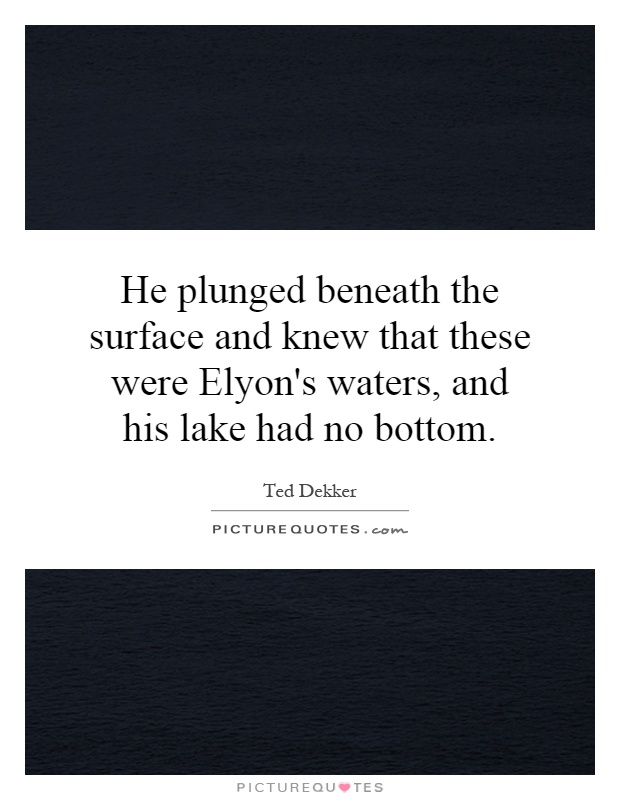He plunged beneath the surface and knew that these were Elyon's waters, and his lake had no bottom

He plunged beneath the surface and knew that these were Elyon's waters, and his lake had no bottom
In the world of Ted Dekker's novels, the phrase "He plunged beneath the surface and knew that these were Elyon's waters, and his lake had no bottom" holds a deep and profound meaning. Elyon is a central figure in Dekker's Circle series, representing the ultimate source of power and truth in the universe. The idea of Elyon's waters being bottomless suggests a sense of infinite depth and mystery, reflecting the boundless nature of Elyon's wisdom and presence.In Dekker's novels, characters often find themselves facing challenges that push them to their limits, forcing them to confront their deepest fears and desires. The image of plunging beneath the surface of Elyon's waters can be seen as a metaphor for diving into the unknown, facing the darkness within oneself, and ultimately discovering the truth that lies at the heart of all things.
For the protagonist of Dekker's stories, this moment of plunging into Elyon's waters represents a turning point in their journey, a moment of profound transformation and revelation. It is a moment of surrender, of letting go of control and allowing oneself to be carried by the currents of fate and destiny.
The idea that "his lake had no bottom" suggests a sense of endless possibility and potential, a reminder that there are always new depths to explore and new truths to uncover. It is a reminder that the journey towards self-discovery and enlightenment is never truly complete, that there is always more to learn and more to experience.












 Friendship Quotes
Friendship Quotes Love Quotes
Love Quotes Life Quotes
Life Quotes Funny Quotes
Funny Quotes Motivational Quotes
Motivational Quotes Inspirational Quotes
Inspirational Quotes